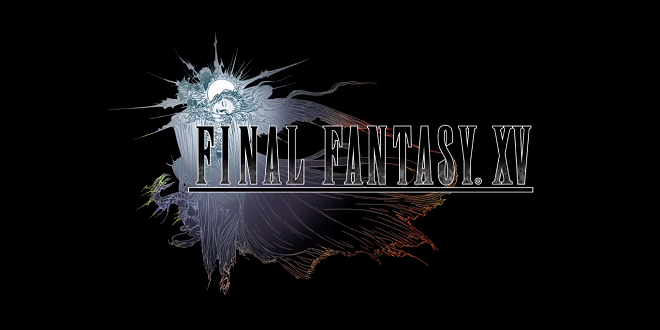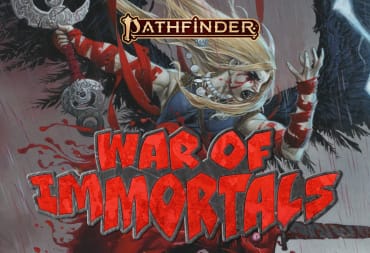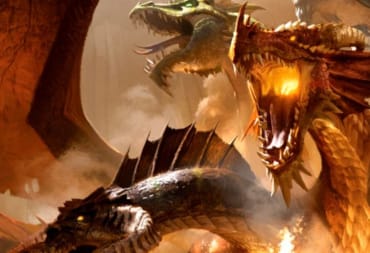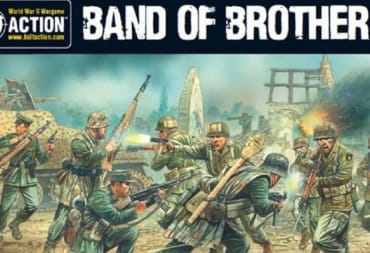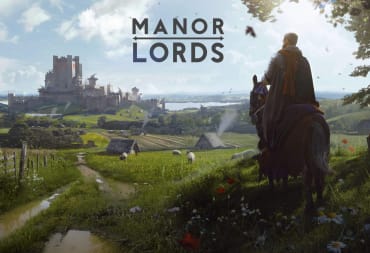Counting back, this marks the 65th editorial I have written here at TechRaptor. I've talked about health bars, diversity in gaming, and GamerGate. About the IGF, Mighty No. 9's community management, and how a gamer's gender says nothing about their ability to play the game. Imagine if they had been called Editorial XXIII, Editorial XI, and Editorial XLI. Doesn't tell you a whole lot does it? You do get some sense of what a general approach/what the writing will be as I was the one who wrote it. Maybe there's something linking it all together with my philosophies, politics, beliefs, etc. However, it's still not really all that useful. Neither is Final Fantasy XV or The Elder Scrolls VI.
Now, I recognize that it's not entirely fair to compare my articles to the expectations one can find in a gaming series. Most of us know the type of game we will be getting in Fallout 4, and we even have a reasonable idea of what Final Fantasy XV will be like from the title. However, it is of my opinion that those game titles offer little to no value, solely offering up opportunities for confusion.
Bear with me in this act of pedantry as I do feel there is at least the tiny semblance of a point.
First though, this only really applies to narrative focused games as what we find in something like Need for Speed 9 will be similar, with new features obviously, to what you found in Need for Speed 3. In other words, the genre/gameplay is largely the same without having to even think about an overarching narrative—though, Need For Speed, please do if you'd like I guess.
However, now imagine if Mass Effect and Mass Effect 2 had no relation to each other narrative/story wise. That doesn't make a whole lot of sense if it isn't a true sequel. Sure, have them named Mass Effect: The Reapers and Mass Effect: Andromeda ...
Mass Effect shows how game titles should be done if games choose to put numbers in the title to denote a sequel in the series. How little sense would it have made for Andromeda to have been titled Mass Effect 4 when Bioware have stated it will be an entirely new adventure with new characters? Mass Effect 1, 2 and 3 make sense title-wise as they are an arching narrative with similar characters throughout. It follows the same protagonist dealing with the same issues.
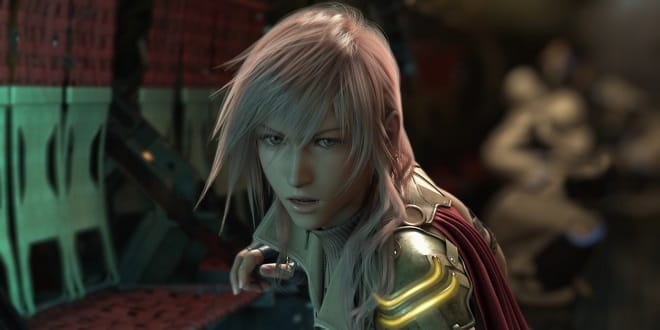
Now look at Final Fantasy. It is a little unfair as I think Final Fantasy is one of the worst offenders, but other franchises will be looked at here in a bit. Final Fantasy X-2 and Final Fantasy XIII-2 should be all I need to point out as to why the franchise's naming system is stupid. Obviously, they are still banking on the Final Fantasy name in the title, but at least give it some kind of subtitle so we can tell them apart.
How are Final Fantasy VI and VII connected? Basically, a certain style of storytelling and gameplay connects the two, but beyond that there isn't a whole lot unless you count Cid. I would have no issue if the gameplay, with tweaks here and there, stayed relatively the same throughout the series as it is what one has come to expect with the main series. However, the connections between games in the main series is starting to become more tenuous.
Those lines started to blur with Final Fantasy XI, which is an MMO along with Final Fantasy XIV. Final Fantasy XIII's combat blurred it a bit more, with the fast-paced turn-based combat that only sort of felt like there had been pauses for combat. Final Fantasy XV blurs it some more with combat similar to Kingdom Hearts. So, now tell me what the similarities are between IX and XV?
Sure, there will likely be the summons, different magics like black and white, maybe the odd moogle or two, and similar story telling/worldbuilding, but the games are so completely different that it would be difficult to argue that they are a game of the same series. They are nothing more than under a franchise now, connected by similar concepts and only some lore—not similar characters, an overarching narrative, or similar gameplay.
Long ago it may have been true that if you'd played a Final Fantasy game you probably knew what you were getting into if you hadn't played another game in the franchise. Now Final Fantasy # means about as much as any other Final Fantasy game under the franchise in terms of telling me what the game will be like.
Of course, there is an assumed difference in something like Final Fantasy Tactics, Final Fantasy VII, and Final Fantasy Crystal Chronicles, which is a good thing, but only serves to show how meaningless the names of the main "series" of games has become. If the purpose was a string of similarity, with the different names like Tactics used to highlight difference, then the main series has failed at its job. With how it is going, why couldn't Crystal Chronicles been in the main series?
Final Fantasy has spent years creating a certain expectation in the minds of fans as to what the game should be like. Now we still get a certain idea of aesthetic, storytelling, and other accouterments, but that is about it.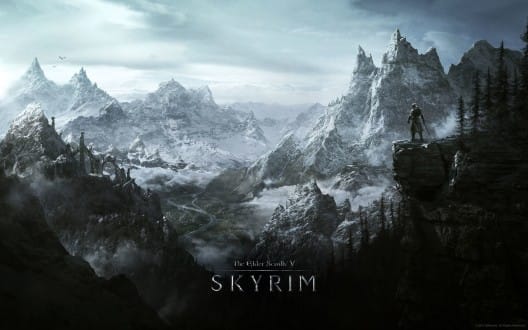
Where Final Fantasy served as a great example in showing how naming conventions make no sense for a series in terms of gameplay, The Elder Scrolls shows it with story/narrative.
Thankfully, The Elder Scrolls Online didn't become The Elder Scrolls VI: Online or some other such nonsense. However, I still have issue with the numbers in the title at all. The numbers are so meaningless that they aren't even referred to at all. Who calls Skyrim The Elder Scrolls V? Or Oblivion The Elder Scrolls IV? Nobody.
It gets even more confusing as some of the game's storylines and characters are connected and others aren't. The first four have some shared characters and events that matter between the four games, but then we get something like Skyrim, which is set 200 years after the end of Oblivion. (Oh, and none of this is mentioning the many retcons that have happened from game to game. Just in case we needed a bit more confusion.) Nothing there seems to connect them at all. The first four are at least loosely connected, spanning a similar period of time. Nothing really tells me that Skyrim is a supposed sequel to Oblivion in-game—the closest being that it happens further down the timeline of the world. The only reason I know is because of the "V" in the title.
So all would have been good if the first four had just been I-IV and Skyrim was just Skyrim right? To a point, sure. But then we get the issue of how Bethesda has decided to name expansions. Which came first The Elder Scrolls III: Bloodmoon, The Elder Scrolls III: Morrowind, or The Elder Scrolls III: Tribunal? The boxes, and other advertisements, will assuredly tell you which are the expansions, but why should I not be aware of that in the title?
I can't believe I am going to say this, but at least I know which one comes first with XIII-2 and XIII with Final Fantasy—though Lightning Returns screws all that up. Also, this was somewhat fixed in Skyrim as Bethesda at least formatted the titles of the expansions so that we can tell them apart from the main game, The Elder Scrolls V: Skyrim – Hearthfire, etc.
What would have been the issue with getting rid of all the numbers and just leaving the subtitles? Does Skyrim really need to be The Elder Scrolls V? Sure it takes place further on the timeline, but it is so far disconnected from the other games narrative-wise that it just doesn't make a lot of sense to me.
With both Final Fantasy and The Elder Scrolls, we can see just how little sense naming conventions for series of games have become, one from a gameplay standpoint and the other from a story/narrative standpoint. As it is now, I couldn't tell you what Final Fantasy XVI will look like gameplay-wise, and I couldn't tell you where/when The Elder Scrolls VI will take place.
If developers/publishers insist on sequential naming conventions, I should at least have some idea of what to expect/sort of be able to describe the next game in the "series." For now, what it means to be a Final Fantasy game is becoming more difficult to describe, and connecting the dots between The Elder Scrolls games and where their titles belong on the timeline, without having firsthand knowledge, is nigh on impossible.
What other "series" fall into this same naming trap? Which ones do it right? Do game titles really matter?
Have a tip, or want to point out something we missed? Leave a Comment or e-mail us at tips@techraptor.net
